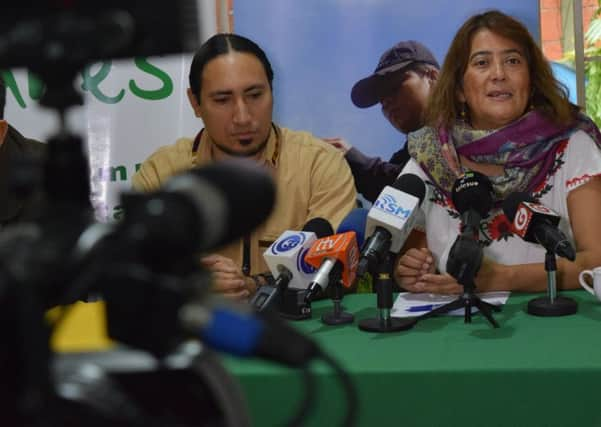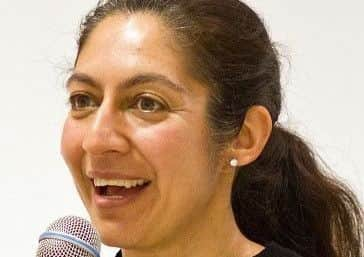Gaby Drinkwater: Climate change needs a big shift in thinking '“ some nations can't wait


Last year, hurricane after hurricane threatened to unleash destruction on Central America and the Caribbean, including El Salvador. Each time a new hurricane was announced, be it Irma, José, Katia or Maria, I felt anxious about my colleagues and our local partner organisations, as these are my climate heroes and heroines, Christian Aid’s climate champions.
I especially remembered the words of Carolina Amaya, who works at our partner organisation UNES (the Salvadoran Ecological Unit): “There is no plan B. There is no planet B.”
Advertisement
Hide AdAdvertisement
Hide AdBut Carolina is a ‘can do’ kind of a person. Over the years we have met in various countries, and her dedication to finding and supporting local solutions to her country’s climate vulnerability is inspirational.


A typical example was after a long, exhausting day at a UN climate conference in Marrakech in 2016. While most rested, we found Carolina burning the midnight oil, shaping proposals to secure more funding for UNES projects. UNES launched the Big Shift campaign in El Salvador last year to raise awareness on the benefits of shifting from fossils fuels to sustainable low carbon energy. The campaign especially aims to persuade anyone who finances fossil fuel use – such as governments, commercial banks, development banks and private companies – to invest that money instead in decentralised low-carbon energy projects that benefit the poorest and most vulnerable.
If shifting from fossil fuels to low-carbon energy is a key to tackling climate change and to addressing poverty, consumers in El Salvador need to be convinced. So UNES has also organised Big Shift technology fairs to promote low-carbon energy use and to showcase accessible forms of low-carbon energy that people may not have ever had the chance to see up close, such as a solar panel, or an energy-efficient cooking stove.
By working closely and together with local organisations, we and our partners believe that public opinion can be mobilised to force bold government and private sector action to tap into the huge – and as yet largely untapped – potential for renewable energy in the region.
The people of countries such as El Salvador have contributed little to climate change, yet they are amongst those who suffer most from its impact and consequences. But climate champions like Carolina and organisations like UNES are adamant that we should not see the situation as all doom and gloom. Their positivity is inspiring.


Positivity can be found closer to home too. Largely free of hurricanes, droughts and tropical storms, climate change affects Scotland in a different way to El Salvador, but there are parallels. Both are countries of 5-6 million people, with huge renewables potential and lively debates about the speed with which a low-carbon future should be embraced.
Scotland’s efforts to be at the forefront of tackling climate change have not gone unnoticed in Latin America and the Caribbean. In 2009 a Salvadoran campaigner gave an impassioned speech at the Scottish Parliament in the run-up to MSPs passing Scotland’s original Climate Change Act, which was, at the time, one of the most ambitious such pieces of legislation anywhere. Back then, Scotland’s headline target of reducing greenhouse gases by 42 per cent by 2020 (from 1990 levels) was considered impossible by many, but ten years on this goal is on track to be met or even exceeded.
With a new Climate Act being passed later this year at Holyrood, Christian Aid is, in the words of a Bolivian colleague, ‘urging Scotland to aim high once again’, by committing to net zero emissions by 2050.
Advertisement
Hide AdAdvertisement
Hide AdSuch ambition would once again set important international precedents, showing that richer countries that have caused climate change can commit to what is necessary to meet the Paris Climate Agreement. If communities in El Salvador, and climate champions like Carolina, can work hard to embrace a low-carbon future – despite having little responsibility for the climate challenge that we all face – then surely countries such as Scotland can and must join them.
Gaby Drinkwater, senior policy and advocacy officer, Latin America & the Caribbean, Christian Aid.